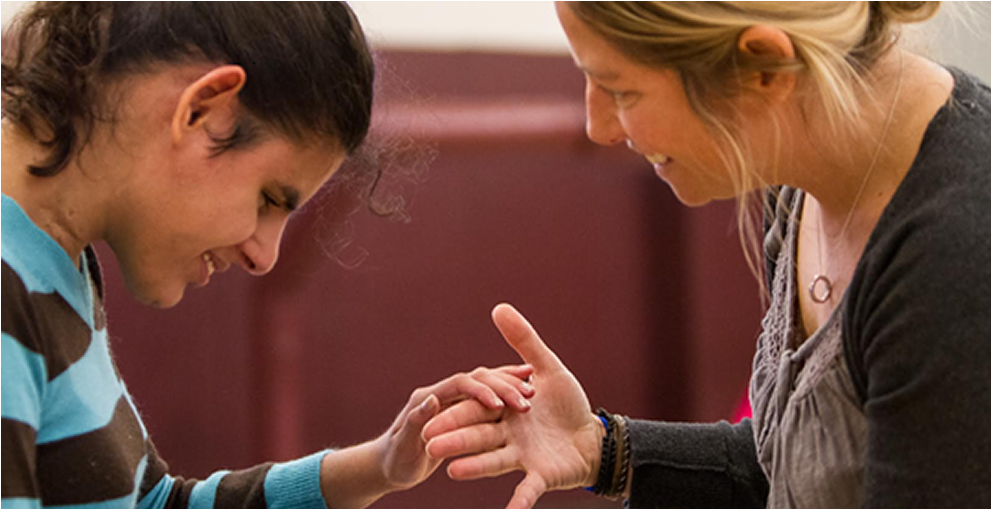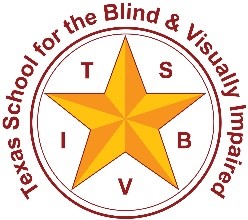About Our Project
A Note About the Use of the Term Deafblind
In 2016, the American Association of the DeafBlind changed the presentation of their name from Deaf-Blind to DeafBlind. In a Facebook posting on April 6, 2016, the group noted there “…is the need to shift from a medical view of being a DeafBlind person to a cultural one. We now view our community as a cultural community.” Helen Keller National Center has recently made this change as well.
Other groups have noted a strong preference for using a combined term with no capitals, e.g., deafblind. DeafBlind Citizens in Action, has chosen to use deafblind as a combined non-capitalized word (except in their title) to recognize a distinct, unified disability. Among international organizations such as Deafblind International, The World Federation of the Deafblind and the UN Convention on the Rights of Persons with Disabilities, the word deafblind is also the most commonly used form of the term, worldwide. Federal IDEA uses the hyphenated term deaf-blind. It’s rarely used outside of quoting IDEA, or other state or federal code. This is clearly an ongoing conversation within the community. The Texas Deafblind Project values that this is a community-led effort and respects each person and their family’s right to use the identity that reflects their lived experiences and preferences.
In current postings on this website, and for now, the term will be presented as deafblind, except when citing legal documents, referring to an individual who prefers a different written form of the term, or matching titles of organizations and previously published documents using a different form.
“DeafBlind is deafblind is Deafblind no matter where you live!” – Jacqueline Izaguerre, DeafBlind Camp of Texas President & National Family Association for Deaf-Blind Treasurer
A Federal Grant Program
A person with vision loss who also has hearing loss may have limited access to information from the environment, which makes learning difficult. When this occurs the child may be considered deafblind. Specialized accommodations and supports in school enable children who are deafblind to learn, communicate, and interact with the world.
The Texas Deafblind Project, located at Texas School for the Blind & Visually Impaired in Austin, is a federally funded grant program whose mission is to support individuals who are deafblind (birth through age 22) and their families. This grant provided by the Department of Education, Office of Special Education Programs (OSEP) is administered through the Texas Education Agency. As part of the TSBVI Outreach Programs, we partner and work in collaboration with the public and charter schools and Education Service Centers of Texas. To learn more about our Project or request a service, visit us on the web at https://tinyurl.com/tsbvi-deafblindproject or contact us at 512-454-8631.
Meet Our Grant Leads
Kate Borg, Outreach Director and Texas Deafblind Project Coordinator, Texas School for the Blind & Visually Impaired

Kate Borg is the Director of Outreach Programs at TSBVI and the Texas Deafblind Project Coordinator. Kate joined TSBVI in 2019 after working at the Utah School for the Deaf and the Blind (USDB) and in Prince William County, Virginia. Kate has been an administrator, instructional coach, classroom teacher, and itinerant TVI working with students who are blind, visually impaired, and deafblind. In addition to leading TSBVI’s Outreach mission, Kate has leadership roles within the Association for Education and Rehabilitation of the Blind and Visually Impaired (AERBVI) and sits on research grant committees to improve instruction for students with sensory impairment.
Nicholas Trotter, Visual Impairment Program Administrator and Deafblind Grant Director at Texas Education Agency

Nicholas Trotter is a certified teacher of students with visual impairments. Over the last three years, Nicholas has served as an itinerant teacher of students with visual impairments in Sumner County, Tennessee. Prior to his experience in Sumner County, Nicholas taught physical education for students in grades pre-K through twelve and high school wellness at the Tennessee School for the Blind (TSB) for four years. In addition to his teaching responsibilities at TSB, Nicholas coached wrestling and goalball.
While teaching and coaching at TSB, Nicholas earned his M.Ed. in Special Education – Visual Disabilities at Vanderbilt University. He received a B.S. in Exercise Science, Physical Education, and Wellness from Tennessee Technological University. Nicholas completed the certification program in Orientation and Mobility at Stephen F. Austin State University. During the summer of 2015, Nicholas worked with the Texas Department of Assistive Rehabilitative Services DREAM Program teaching Expanded Core Curriculum skills to high school students and recent graduates with visual impairments. His professional interests include adapted sports, orientation and mobility, and outcomes for young braille readers in general education classrooms. Nicholas completed a Ph.D. program at Florida State University in Curriculum and Instruction in Special Education – Visual Disabilities.
Services
- Free newsletter about visual impairments and deafblind topics, TX SenseAbilities
- Support, information, and training statewide online and in-person for families and professionals
- School consultation and technical assistance for families, teachers, paraprofessionals, and programs serving students (birth-22) who are deafblind
- Information and referral for families and professionals
- Funding assistance for families to attend training
- Access to technology loans for schools to try out assistive technology before purchase
Texas Deafblind Outreach Staff
- Kate Borg, Director of Outreach Programs, 512-206-9242 borgk@tsbvi.edu
- Jesus Curi, Administrative Assistant, 512-206-9128 curij@tsbvi.edu
- Brian Sobeck, Deafblind Child Count, 512-206-9225 sobeckb@tsbvi.edu
- Edgenie Bellah, Family Engagement Coordinator, 512-206-9423 bellahe@tsbvi.edu
- Hillary Keys, Early Childhood Consultant, 512-206-9183, keysh@tsbvi.edu
- Kaycee Bennett, Education Consultant, 512-287-0726 bennettk@tsbvi.edu
- Rachel Collins, Education Consultant, 512-206-9359 collinsr@tsbvi.edu
- Sarah Mossberger, Education Consultant, 512-206-9314 mossbergers@tsbvi.edu
- Heather Withrow, Transition Specialist, 512-206-9226 withrowh@tsbvi.edu
- Nicholas Trotter, Texas Education Agency, 512-463-9414 Nicholas.Trotter@tea.texas.gov


